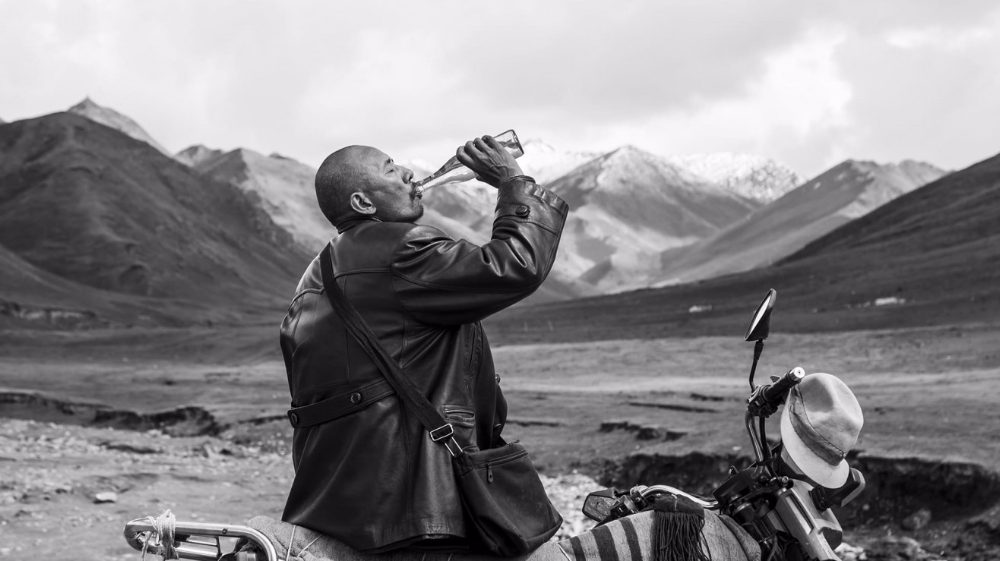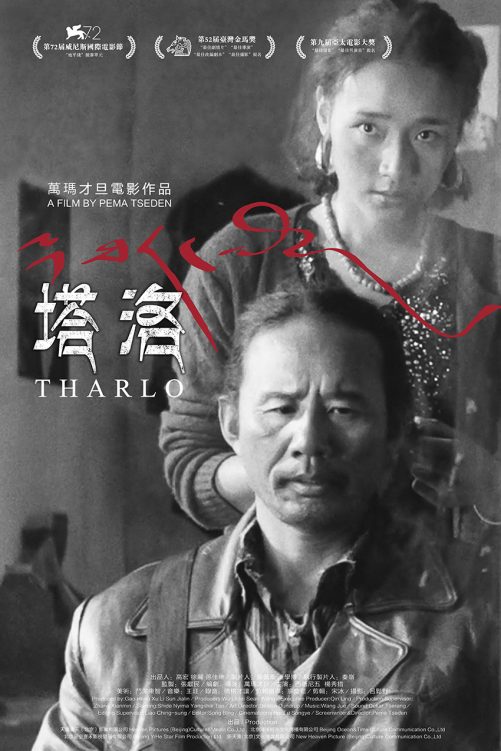Tharlo

“You need to get an ID card,” the eponymous Tharlo (Shide Nyima) is told at the beginning of Pema Tseden’s feature. The journey our leading man goes on to try and get this card forms the backbone of the plot and establishes identity at the centre of the narrative. Tharlo paints a picture of contemporary life in Tibet through the eyes of a man who spends his days herding sheep in the vast plains, but on his quest to get a photo taken for his identification, he must travel into the nearby town where he meets a young girl, Yangtso (Yangshik Tso). What follows is a series of sexually charged events that lead him towards a point of self re-evaluation.
One of the most impressive aspects of Tharlo is Songye Lu’s cinematography. The sprawling, rugged Tibetan landscape brings into relief the loneliness that lies at the heart of Tharlo’s crisis and effectively contrasts with the busy, cluttered town where his sense of self will too become confused. The film is shot entirely in black and white, lending a certain timelessness to Tharlo, and you do not need to be well-versed in Tibetan culture and history to appreciate the universal themes it tackles. The two-tone black and white also underlies the contrasts within the narrative: old agricultural ways of life versus new urban ones; age versus youth; and tradition versus modernisation.
The young girl Tharlo meets is not like the Tibetan girls he used to know, and the differences between his life as a shepherd and hers as a hairdresser are shown to be huge. Tharlo, however, is not a story of a man coming to being via exposure to the big city but something far more sobering. Tseden develops his journey slowly and deliberately, drawing out the sensuality of his encounter with Yangsto and, by the same token, drawing out the monotony and solitude of his life as a farmer. Sometimes you may think this goes too slowly, but the pace plays a big role in evoking the life that Tharlo leads.
Tharlo paints a portrait of a Tibet split in two – caught between its communist, agricultural past and urbanised present whilst avoiding cliché and romantics. You must be ready to sit back and slow down with the film, but as a feast for the eyes and crossing cultural borders with its story, it is very much worth it.
Tess Colley
Tharlo is released in selected cinemas on 30th September 2016.
Watch the trailer for Tharlo here:

























Facebook
Twitter
Instagram
YouTube
RSS